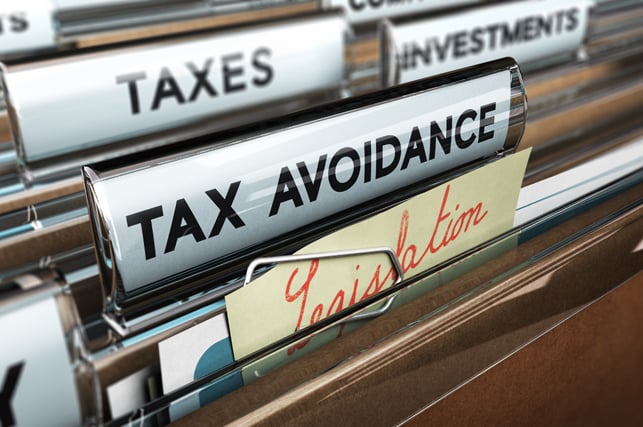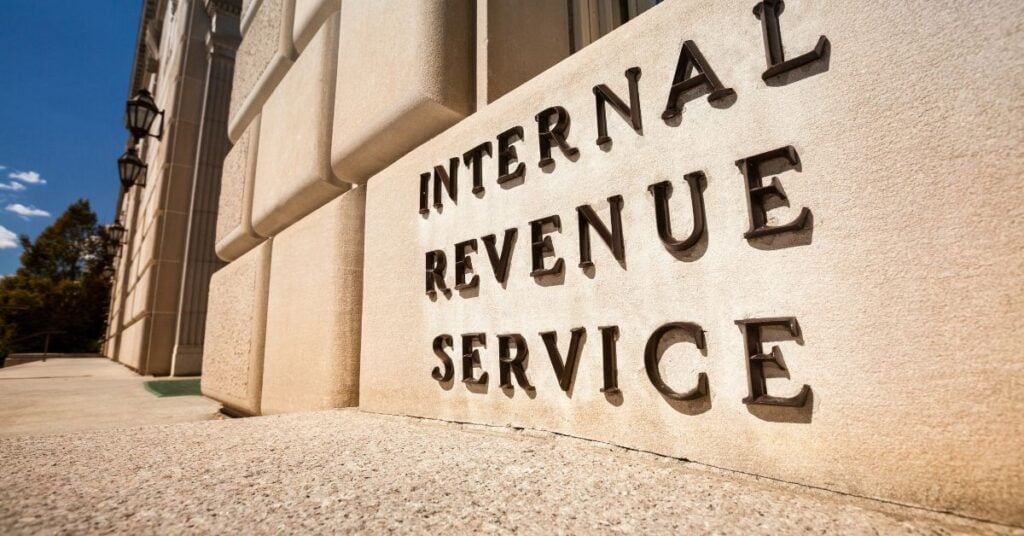A year ago this week, President Biden and Congressional Democrats made good on promises from the campaign trail to enact new legislation reversing decades of tax subsidies for the very rich and for big corporations.
The Inflation Reduction Act (IRA) passed last August championed tax fairness, addressed critical shortfalls in the federal budget by making the most well-off pay what they owe to society, and invested new revenues in shared resources including public health and the environment.
Enacted the Corporate Minimum Tax
The Inflation Reduction Act marked a significant victory against corporate tax avoidance. For years, highly profitable corporations like General Electric and Duke Energy reported billions of dollars in profits to their shareholders but used special tax breaks and accounting gimmicks to report zero profits to the IRS and pay nothing in federal income taxes. Other companies like Boeing, IBM, AT&T, and many others were able to use these tactics to pay effective tax rates in the single digits, far below the corporate income tax rate.
The 2017 tax law made the situation worse by slashing the corporate income tax rate from 35 percent to 21 percent without addressing the special breaks and loopholes allowing companies use to avoid the tax altogether. Companies like DISH Network, FedEx, and T-Mobile made out like bandits, earning billions and billions in profits but paying nothing in federal income taxes in the years since the 2017 law was enacted. Many large companies – Amazon, Honeywell, Verizon, and others – have continued to pay effective tax rates in the single digits.
The IRA addressed some of these scams by requiring corporations with profits over $1 billion to pay taxes totaling at least 15 percent of their worldwide “book” profits, i.e., the profits they report to their shareholders. The corporate alternative minimum tax will only hit the very largest companies that tell their shareholders they’ve earned billions of dollars while reporting very little or no income to the IRS. Researchers have estimated that if this minimum tax were in effect in 2021, the very largest multinational corporations like Amazon, Berkshire Hathaway, and eBay would have had to pay it. The tax could be made even more effective by broadening its base and extending its reach below the $1 billion threshold.
Funded Tax Enforcement on the Wealthy and Assistance for the Middle Class
For decades, Congress slashed funding for the IRS, leaving the agency with a dwindling workforce and antiquated technology and business systems. The result was a victory for wealthy tax dodgers, who could hire armies of accountants and lawyers to out-maneuver the IRS, but a massive headache for the millions of regular American families who spent hours to get a simple answer about their taxes or waited weeks for tax refunds they needed to pay their bills.
The IRA injected $80 billion into the IRS, aimed at improving services for taxpayers and cracking down on wealthy tax cheats. Initial estimates suggested the additional funding would facilitate an influx of $200 billion in revenue over the subsequent decade.
The investments in customer service were an immediate success for middle-class taxpayers. Treasury reported that by the end of tax filing season, the IRS had successfully answered 2.4 million more calls than the prior year and had cut phone wait times by 85 percent.
Unfortunately, Republicans in Congress demanded cuts to IRS funding as one of their conditions to avoid a catastrophic default on federal debt payments. Of course, that position was entirely inconsistent with their ostensible objective of reducing government deficits, as the IRS cuts are expected to increase the deficit over the next decade. The result of the reduction of the IRS funding from the $80 billion in the IRA to $60 billion will be fewer audits of the uber rich and multinational corporations and more headaches for regular Americans.
Introduced the Stock Buyback Tax
The Inflation Reduction Act also addressed a method that corporations use to help wealthy shareholders avoid paying taxes on income from corporate equities. Normally, a company distributes profits to its shareholders as dividends, which are subject to the personal income tax. Since stock buybacks were made legal in the 1980s, however, companies increasingly avoid distributing dividends and instead repurchase their own shares, which has a similar effect of transferring wealth to shareholders, but without triggering income tax liability. The value of the stock increases for those who continue to own it – often the corporate executives who decide to implement buyback programs in the first place – but they avoid paying income tax they would owe if they received dividends.
To ensure profits distributed from corporations to their affluent shareholders don’t go untaxed, the IRA introduced a small excise tax on corporate buybacks, slightly diminishing the tax advantage of this strategy. This move was intended to ensure that if corporations do not have profitable investments to make within their own business operations, then they would contribute to needed public investments like schools, roads, and healthcare.
Arguably, the excise tax on buybacks should be much higher than 1 percent to ensure parity with dividends, which are typically taxed at a rate between 15 and 23.8 percent. President Biden and Congressional leaders have already suggested that the excise tax should be raised to 4 percent.
A Win for Tax Fairness, but the Fight Isn’t Over
The Inflation Reduction Act helped reorient the tax code and tax administration to do more for real American families and less for the wealthiest 1 percent and multinational corporations. But now its successes need to be defended and improved upon.
Already, Republican lawmakers have diluted the success of the legislation in significant ways. As mentioned, the GOP threatened to crash our economy through a catastrophic debt default unless some of the IRA’s funding for tax enforcement of the wealthy and corporations was slashed, which will eventually mean fewer IRS audits if that funding is not restored in the future.
Republicans on the House Appropriations committee also advanced a plan to block the IRS from developing a free electronic filing program that was included in the IRA at the behest of big corporations like TurboTax and H&R Block, despite the fact the majority of taxpayers would prefer the option to file their taxes directly with the IRS through such a program.
In a package passed through the House Ways and Means Committee this year, Republican tax writers also seek to cut into the corporate minimum tax through bogus research deductions, “bonus depreciation,” and other tax breaks. The research provision needlessly subsidizes private research conducted by companies making frozen breakfast foods and casino games. Extending “bonus depreciation” (which is starting to wind down this year) would allow mega corporations including Google, Facebook, and UPS to write off billions in investments they would likely make with or without the provision. In total, the House tax package would provide an average tax cut of more than $16,000 to the richest 1 percent while leaving the poorest 20 percent with an average of about $40.
And while the IRA marked a turning point in creating a fairer tax code, there is still work that lawmakers need to finish. Two top priorities are expanding the Child Tax Credit to lift millions of kids out of poverty and implementing the global minimum tax the Biden administration negotiated with our biggest international allies.
The fight marches on, and important work remains. But the Inflation Reduction Act was a course correction from decades of tax cuts that primarily went to the richest Americans and left the rest of us with budget shortfalls that conservative lawmakers now seek to plug with cuts to Social Security and Medicare. For the first time in generations we are finally asking those who have benefited the most from our economy to contribute back.





